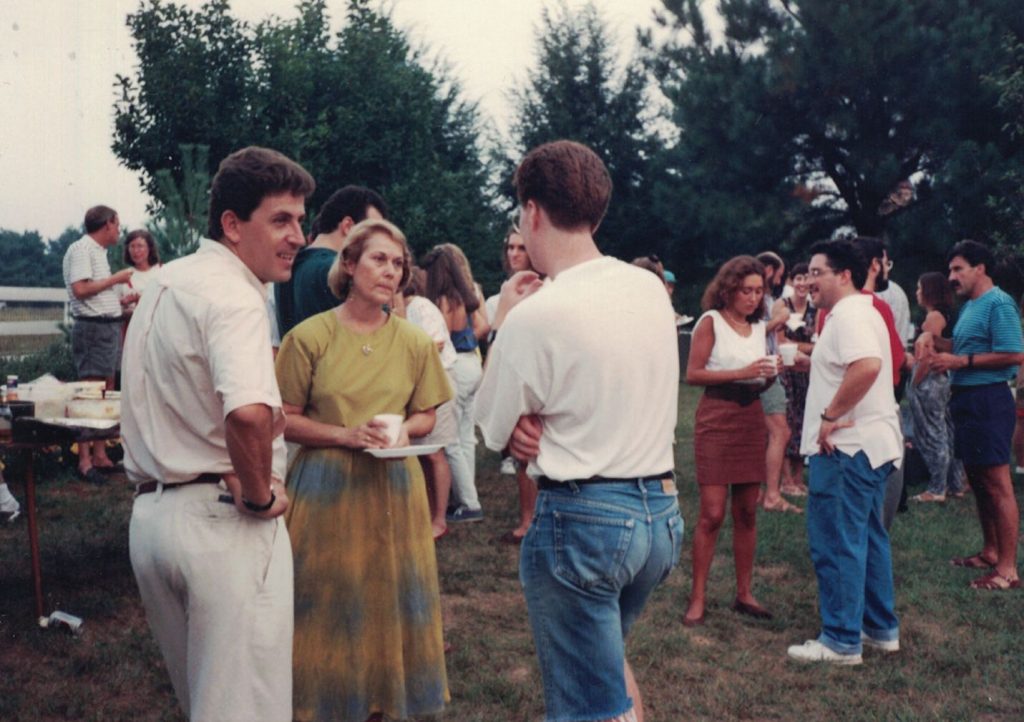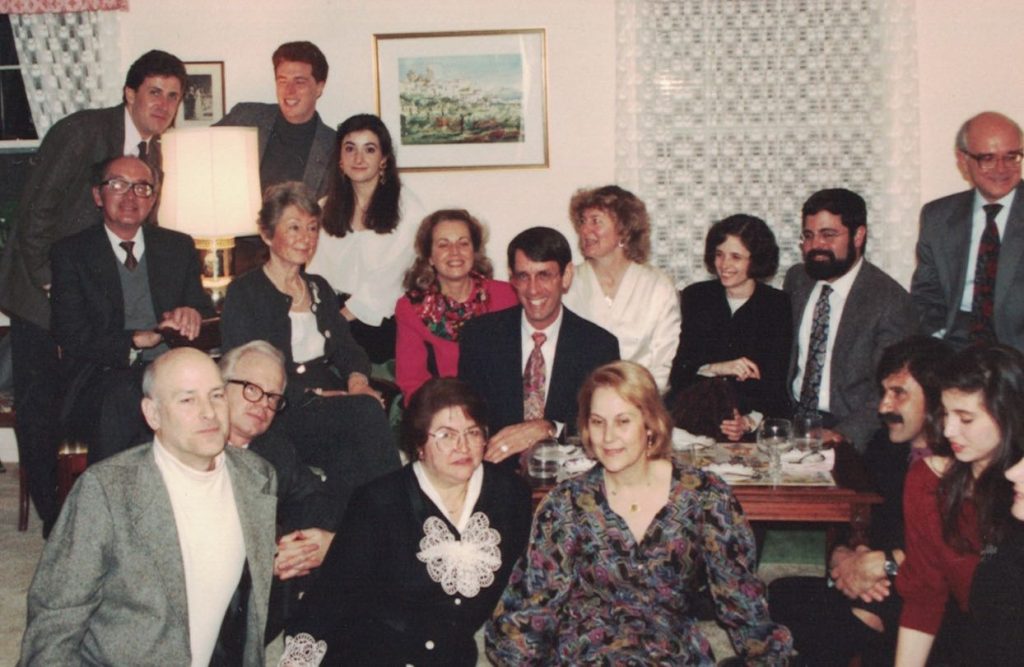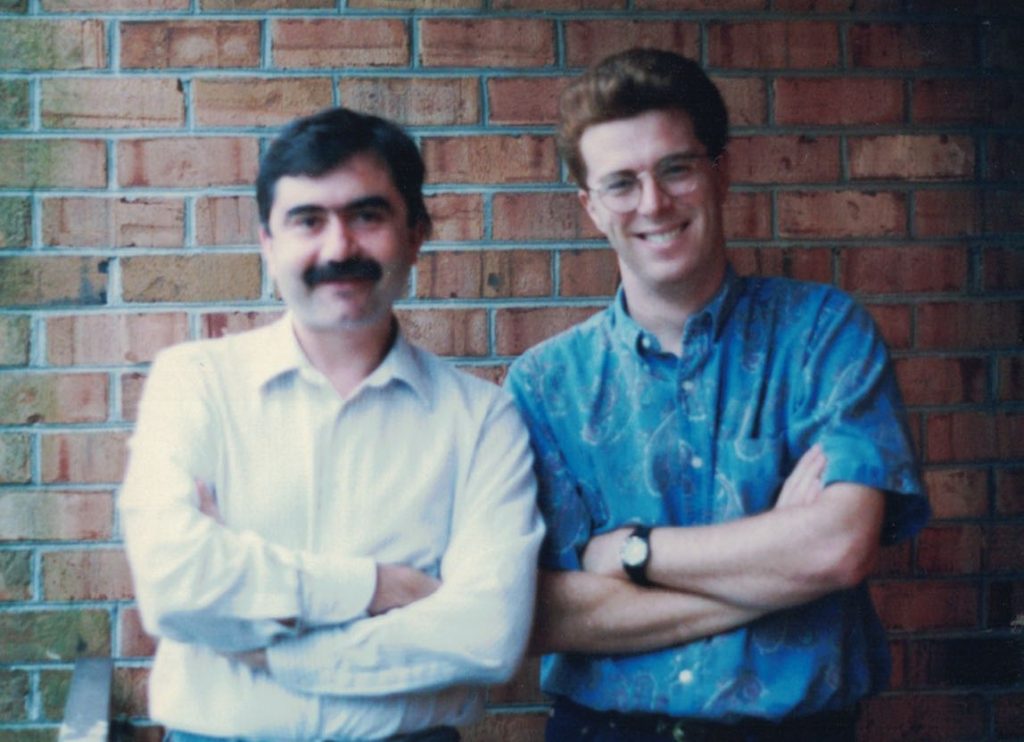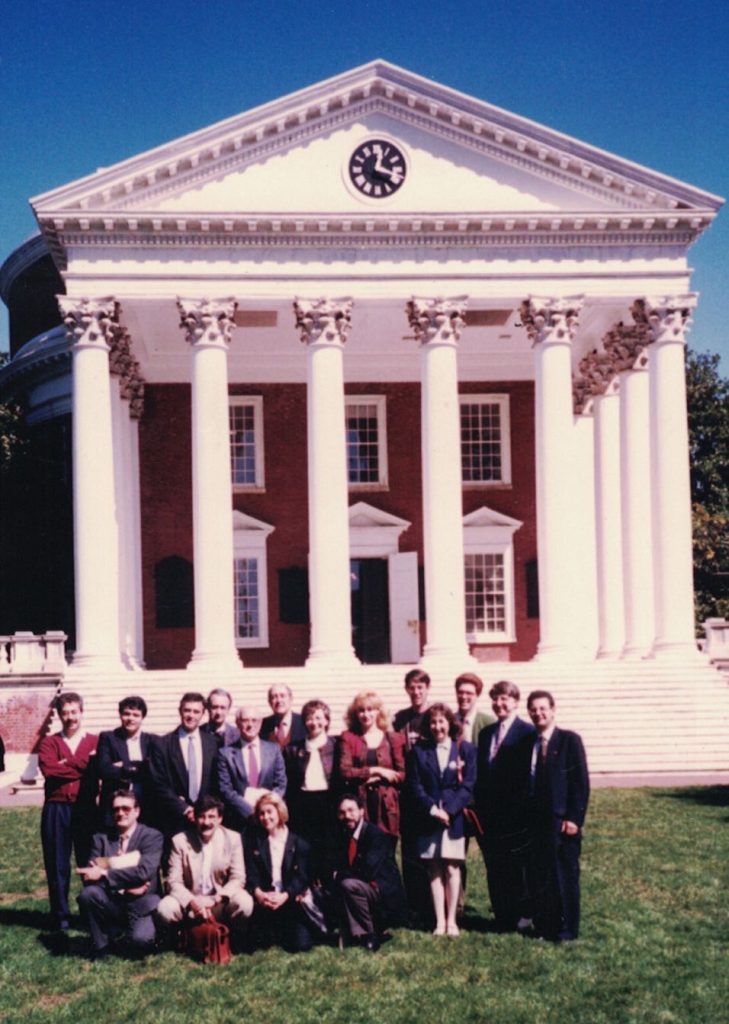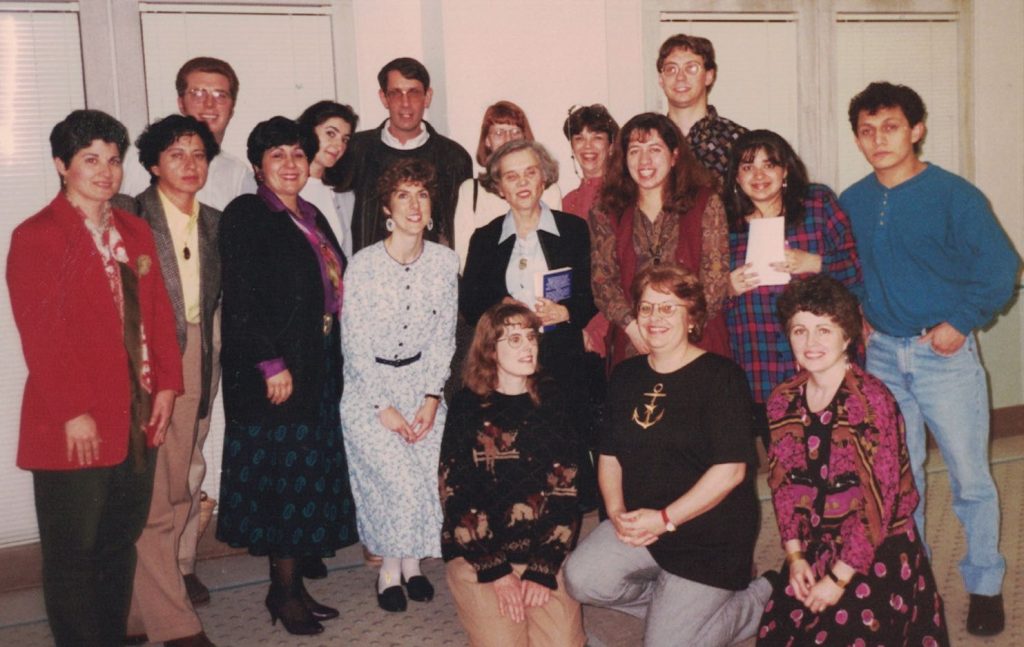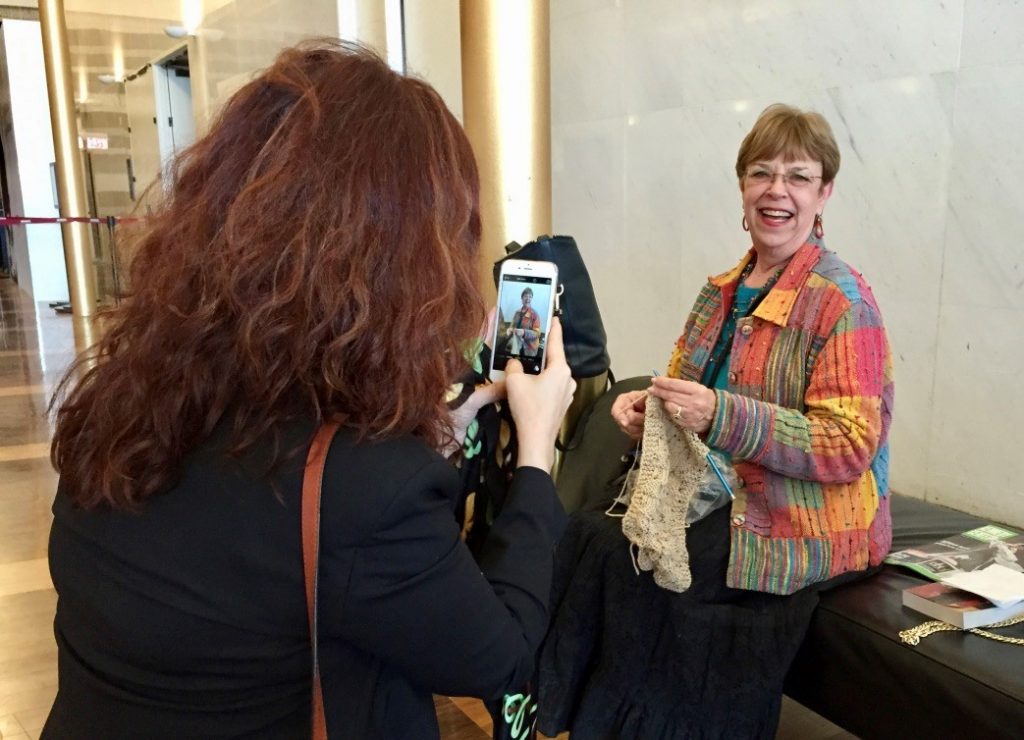By Susan Carvalho
Does it matter that, three decades later, I don’t really remember very much about the classes I took with David Gies? I remember that I didn’t find Fray Gerundio as funny as he did, that my mind wasn’t blown by Feijoo, that the Romantics were very dramatic, and I thought the eighteenth century seemed “long,” too! I appreciate and admire all that Mr. Gies has done to discover new knowledge and to teach generations of us to do that. But that wasn’t what really changed lives.
What I remember, and will never forget, is sitting on my kitchen floor in Illinois wondering why a stranger wanted me to come to UVA – while he told me how SURE he was that it was the right place for me. I remember coming for a campus visit, while he was DGS, and being astounded that everyone I met was carrying an itinerary for the day with my name on top of it! During that lonely first year, in February I went to visit my grandmother in Maine. I had a hard time making myself come back, because I knew no one would notice I was gone – so I spent an extra week up there, and didn’t even have anyone to notify that I was extending my visit. When I forced myself to come back, indeed most people didn’t notice I had been away. Until I ran into David Gies in the Cabell hallway, and he said “Where have you been? We missed you!”
I remember his baffling generosity, when my mother came to visit and he made her feel like I was doing something important. I also remember learning how to work for someone like him, when I was the program assistant for his summer NEH workshop. He asked me to make some kind of arrangement, which I was going to do soon enough – but I wasn’t working at Gies-speed. So when I called to make the arrangements, I found that he had lapped me, had already done it. Oh, so THAT’S what you meant by “whenever you can.”
I still draw on the wise counsel he gave so freely, and have passed it on to my own generations of students. Like the time I was second-guessing some decision I had made, and he knew how to free me up from that anxiety: “You can’t ask yourself whether you made the right choice, you can only ask yourself if you made the right choice given what you knew at the time.” David, your “academic grandchildren” have been so grateful when I have gifted them with that self-forgiveness!
He tried to pretend he liked graduate-student-generated Velveeta-based tapas, he cared when my cat got run over, he and his wife opened their home to so many of us and shared their dogs with us, and he continuously reminded us how lucky we were to be in a department that got along well – and to make sure we modeled that professionalism in our own future careers.
I remember him laughing at the group of us, on the day we were quaking to receive our Masters comps questions, and he said “Look at you all – you came in here relatively healthy and we’ve turned you into these neurotic messes!” (That part was true, and not so funny.)
So not Cadalso, or Grimaldi, or Jovellanos – what I learned from David Gies is how important a mentor can be to students’ success at such a transitional time of their lives. I learned that you can’t fake the listening or the caring, that you never know which casual words will be heard at just the right time or have lasting impact, and that being a great teacher goes way beyond the syllabus. I am forever grateful that first Mary Jo and then Janna have welcomed David’s students into their hearts and homes, and so glad that, as I sat there on my parents’ kitchen floor, David knew UVA was the right place for me.
